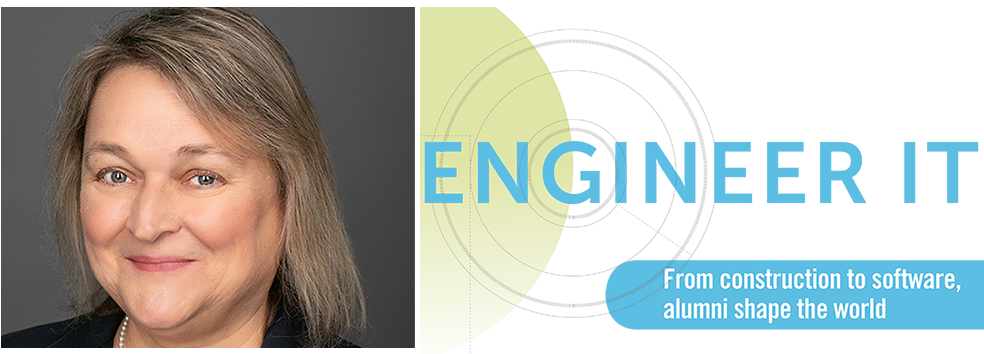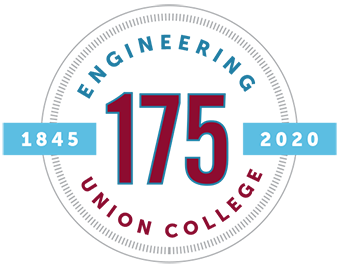Helping to understand the electrophysiology of the brain
Yvonne (Szymko) Bennett ’87 earned a B.S. in electrical engineering from Union before earning a master’s and Ph.D. in bioengineering from the University of Pennsylvania. She also holds a master’s in audiology from Syracuse University.
Yvonne is a program officer in the National Institute of Mental Health at the National Institutes of Health (NIH), in the Office of Technology Development and Coordination, where she supports scientists and their research in brain imaging and electrophysiology, specifically with the Human Connectome Project and the Brain Initiative.
She is developing a new initiative to harness machine learning using brain imaging and other data to help stratify patients, with the hopes of developing new therapeutics for mental health disorders. She also supports the NIMH Suicide Research Team, an institute-wide funding effort to decrease the incidence of suicide in the U.S. by 20 percent by 2025.
Other career highlights include being a Mirzayan Science Policy Fellow at the National Academy of Engineering. Recently, she served as a review panel member for a funding announcement by the U.S. Department of Health and Human Services: “National Infrastructure for Mitigating the Impact of COVID-19 within Racial and Ethnic Minority Communities.”
Yvonne supports junior scientists and encourages them to stay in science or a related field through local science fairs, as a member of the Association for Women in Science, and other forums. She also supports scouting and little league baseball in her area. In her free time, she likes to ski, sew, hike and go to art museums with her family.
What are/were the most challenging aspects of your career? What are/were the most rewarding?
For me, trying to raise a family and have a career as a military spouse has been the most challenging aspect. Moving with my spouse, a brigadier general in the U.S. Army, made it impossible to pursue an academic position. Enduring his three deployments to Iraq and Afghanistan made for some trying days. You learn to take things one day at a time, be resilient and seek the strength in your family.
As a public servant, it is a true honor to be able to support the nation’s finest scientists and engineers conducting work in brain imaging at the NIH. The most rewarding times for me included experiencing the power of scientific discovery while at The Deafness Institute at NIH. There I reported new clinical findings in hereditary hearing loss, such as my work in Stickler syndrome, and helped contribute to the field of hearing science. Seeing live sensory cells of the inner ear under a light microscope and examining their micromechanical tuning properties in my dissertation was also an amazing experience. The hearing science field is now beginning to see all of its efforts come to fruition, with a real possibility of applying gene therapy in the inner ear for the restoration of hearing.
How has your engineering degree been useful in another field?
Electrical engineering is a broad field and I have used my quantitative skills and analytic abilities in approaching problems in human and animal physiology – everything from coding, to working with all kinds of instrumentation, including magnetic resonance (MR) imaging systems and acoustics.
What was your most formative experience at Union?
In the summer of my junior year, Judy Dimauro Sarkis’87 and I spent time in the Lown Cardiovascular Laboratories at the Harvard School of Public Health as a part of the General Electric Expanded Horizons Scholars Program. This was my first foray into conducting biomedical research, and convinced me to pursue an advanced degree in biomedical engineering.
What’s the best piece of advice (professional or personal) you ever received?
My father had a huge influence on my career path – he worked at General Electric for 33 years. He was a ham radio enthusiast and built a model steam locomotive in our basement! The JETS program in my high school also gave me the confidence to give engineering a try. I was very torn between pursuing engineering and medicine. A JETS engineering mentor at Griffiss Air Force Base said, “You can do anything you want.” That clinched it for me.


